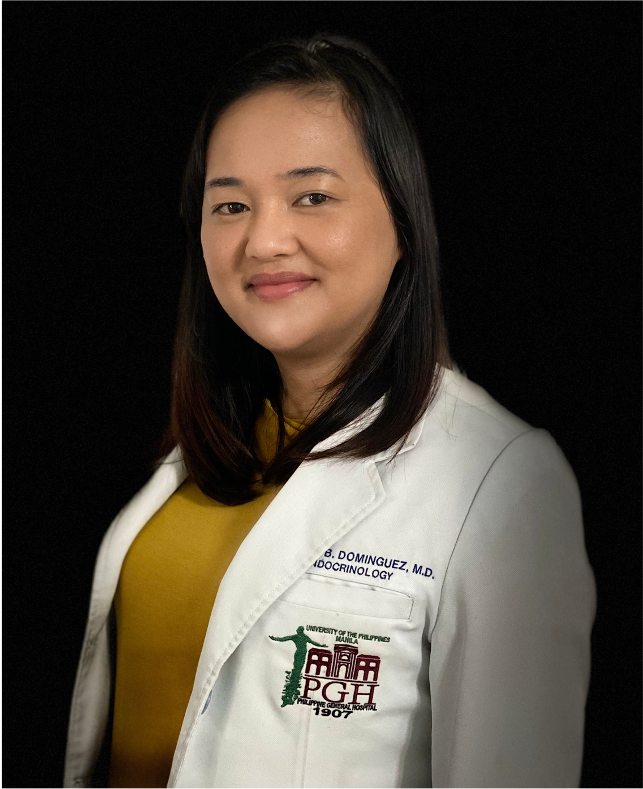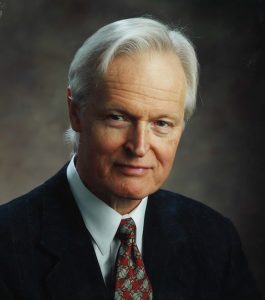
Hydelene B. Dominguez, MD, the first winner of the Endocrine Society’s C. Wayne Bardin International Travel Award, talks to Endocrine News about how her Filipino community inspired her to pursue research on radioactive refractory thyroid cancer, as well as her excitement at the prospect of attending ENDO 2022 in Atlanta.
Aside from being the first completely virtual annual conference, ENDO 2021 also was the setting for the inaugural presentation of the Endocrine Society’s C. Wayne Bardin International Travel Award, which was given to Hydelene B. Dominguez, MD, for her research on pheochromocytoma, a rare neuroendocrine tumor.
Armed with a mission to heal the Igorot people from her village in the mountains of northern Philippines, Dominguez has overcome the challenges of a rural, indigent birthplace to become the chief fellow of the Division of Endocrinology, Diabetes and Metabolism of UP-Philippine General Hospital.
I am aware this award is both a recognition and a responsibility. Truly, I am more committed to persevere to become a better researcher and endocrinologist to heal more patients and uncover answers to many questions in our field.
The C. Wayne Bardin International Travel Award, an award that pays tribute to Bardin, who died in 2019, and recognizes his passion for nurturing young researchers by covering the costs to send a young, outstanding endocrinologist to ENDO. Candidates for the award are chosen based on the quality of their ENDO abstract and the overall quality of their science.
Endocrine News asked about her mission to improve the endocrine health of people in her homeland and her ENDO travel plans.
Endocrine News: How did it feel learning you were first winner of the Bardin award?
Dominguez: When I first learned that I had been selected as the recipient of such a prestigious award, I was astounded. Never in my wildest dreams did I imagine this would happen in my life. Because of my self-doubt and lack of confidence, I was initially reluctant to participate in the screening. But my mentor, Dr. Elizabeth Paz-Pacheco, never gave up on me and kept encouraging me until I turned in my paper. I will be eternally grateful to her. Furthermore, I am sincerely grateful and honored to have been chosen, and this is all because of the people who believed in me and helped me become who I am today, particularly my family, mentors, colleagues, co-authors, and patients. I am aware this award is both a recognition and a responsibility. Truly, I am more committed to persevere to become a better researcher and endocrinologist to heal more patients and uncover answers to many questions in our field.
EN: Your letter to the Endocrine Society describing your Igorot heritage and the medical care in your village is inspirational! When did your dream of being a doctor first begin and what or who was the biggest influence into helping you leave your wonderful village for a medical school far away?
Dominguez: Growing up, I witnessed the difficulty of community members who had to drive for hours to the city for medical consultations. I am also aware that other patients in remote parts of our community had to be transported by hammock because no roads were accessible for the ambulance or cars to travel. Traveling was daunting back then, and there were few public transit options. This reality inspired me to pursue a career as a doctor. Furthermore, I know that most Igorots would rather visit the local “mambunong” or native priest than be examined by medical doctors. Thus, I chose to be educated and trained in one of the country’s well-known hospitals, despite the fact that it is far from my family and hometown, in order to establish my reputation and expertise in my field of specialization. Indeed, I am willing to make the sacrifice of being away from the people and the place I love for a few years to gain the information and skills I need to better serve my hometown.
I am working on research in thyroid and diabetes. Specifically, I am focusing on understanding the radioactive refractory thyroid cancer among Filipino patients because there is currently no data available for the Filipino community.
EN: You won the Bardin award for your excellent ENDO 2021 research on pheochromocytoma. Can you briefly describe where you are with your work and what’s next for you?
Dominguez: My appreciation for medical research has awakened my interest in conducting studies. Unfortunately, I come from a community where research is laid back. I had to work hard to learn how to do such and I am very grateful to a lot of mentors who patiently coached me and instilled in me the values of research.
At present, I am working on research in thyroid and diabetes. Specifically, I am focusing on understanding the radioactive refractory thyroid cancer among Filipino patients because there is currently no data available for the Filipino community. In addition, I am working on knowing the effect of enhanced community quarantine among patients with diabetes to their overall health during this COVID-19 pandemic. I am hoping that the findings will help us, clinicians, better understand our patients and manage their health effectively. I plan to expand my research to bone health and adrenal disorders in the future.
EN: We’re all hoping travel and conferences will be back to normal soon! Are you looking forward to ENDO 2022?
Dominguez Certainly! I will be waiting for the day I can travel for ENDO 2022. It is a once-in-a-lifetime opportunity for a simple Igorota who has big dreams! It will be an honor to represent my country, especially my tribe, in an international meeting of the Endocrine Society. Further, I am excited to meet the people behind this prestigious award and to learn more about the life and works of Dr. C. Wayne Bardin.
Fauntleroy Shaw is a freelance writer based in Carmel, Ind. She is a regular contributor to Endocrine News.

He passed away in New York City on Oct 10, 2019 at the age of 85. During his scientific career, he contributed enormously to women’s reproductive health by developing novel and effective contraceptive methods particularly applicable for use in underdeveloped countries. His key attributes included a passion to help provide reproductive services and training in countries with emerging economies as well as mentoring numerous trainees.
The award’s new application cycle will open in October 2022. To be considered for the award, applicants must be an endocrine fellow currently in training or a junior faculty member for less than five years and submit an abstract to ENDO 2022.
More information on the award and application requirements can be found at: www.endocrine.org/bardinaward. Contact: [email protected] with any questions.
To contribute to this award, donate to the “In Memory of C. Wayne Bardin Fund” at: www.endocrine.org/donation.

